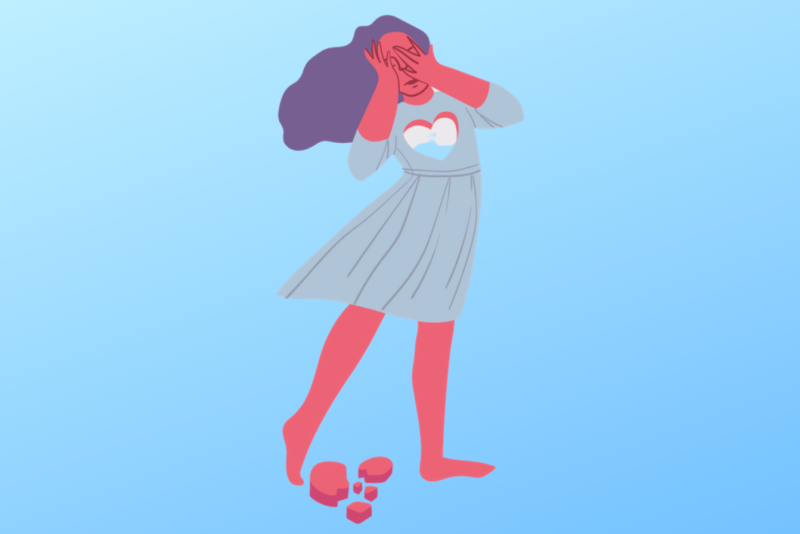I always assumed that since I’m not completely self-sufficient that I wasn’t independent, but I had no idea what it meant to be codependent. That is until I came across Codependent No More by Melody Beattie. According to the author, “A codependent person is one who has let another person’s behavior affect him or her, and who is obsessed with controlling that person’s behavior.”
Hmm…am I codependent?
If you have ever worried yourself sick, helped when no one asked for it, said “yes” when you meant “no,” tried to make others see things your way, performed gymnastics to avoid hurting someone’s feelings (and ended up spraining something yourself), or put other’s needs ahead of your own…then you might be codependent.
As they say, you can’t fix what you aren’t aware of. With that in mind and in a spirit of self-compassion, let’s go over some of the characteristics of codependency.
Disclaimer: I didn’t go to medical school. If you suspect you suffer from codependency, please consult a qualified professional.
You’re the Caretaker
Many codependent qualities are not just condoned or accepted, but celebrated in our culture. Women are expected to be caretakers in our society. If taking care of others becomes detrimental to yourself, you might be codependent. “Neglecting our own needs in the process of caring for someone who doesn’t want to care for themselves” is a sign of codependency, according to Psych Central. Often codependency develops out of a relationship with someone who has a substance use disorder.
Mental Health America asks, “Do you think people in your life would go downhill without your constant efforts?” If you constantly anticipate the needs of others and are shocked when they don’t reciprocate, you might be codependent. If you’re worried about pleasing others instead of pleasing yourself, you might be codependent. And finally, if you drop what you’re doing to “respond or do something for somebody else” as Beattie puts it, then you might suffer from codependency.
You’re A Problem Solver

Yet another skill that’s exalted in our society is problem-solving. There’s nothing wrong with seeking solutions, but it gets murky when you feel responsible for solving other people’s issues. Sympathy and empathy are one thing, but it crosses the boundary when you take responsibility for other people’s problems.
Do you feel anxious or guilty when someone you know has a dilemma? Then you might be codependent. Do you feel responsible for other people’s actions, choices, feelings, needs, thoughts, wants, well-being, or lack thereof? Then you might be codependent. Do you feel compelled to problem-solve, even when no one asked you for advice? Then you might be codependent.
You Go Above and Beyond
Exceeding expectations is yet another seemingly rewarding codependent behavior. People at work love you because you’re always doing more than your fair share. Your spouse is happy because everything lands on your plate, and you keep sopping it up. Going above and beyond at work or at home is the codependent’s way of earning approval. Biting off more than you’re required to chew, problem-solving, and caretaking all are ways of being the “rescuer.”
In the Karpman drama triangle, the rescuer requires recognition—otherwise, they slip into victimhood. So, let’s say you’ve just cleaned the entire house all by yourself again. If no one throws you a parade, or you know, acknowledges your efforts, you may start feeling sorry for yourself, thereby taking the role of victim. Then you may start to yell at your husband about how both of you eat food and wear clothes so how come only one of you does dishes and laundry—thereby becoming the persecutor and completing your way around the Karpman drama triangle.
You Don’t Think You’re Codependent

Denial is a river and you are doing the backstroke, baby. The first step is admitting you have a problem, and codependents are either unaware or reluctant to do so. According to Psych Central, “Usually, they think the problem is someone else or the situation. They either keep complaining or trying to fix the other person, or go from one relationship or job to another and never own up to the fact that they have a problem.”
But You Are…
It’s no surprise that codependents suffer from dependency, including an unhealthy dependence on relationships. Are you in a relationship based on need rather than mutual respect? Then you might be codependent. Psych Central says codependents “will do anything to hold on to a relationship; to avoid the feeling of abandonment” even when the relationship is painful or abusive. Relationships should be mutually satisfying. If you feel trapped in a relationship because you’re scared to be alone, you might be codependent.
You Have Low Self-Worth

Self-worth? Who’s she? Mental Health America says this trait can take the form of doubting your abilities to achieve your dreams. Maybe you abandoned hope that something better is possible a long time ago. I don’t have to tell you about the relationship between low self-esteem and substance use disorders. When we aren’t aware of our intrinsic worth, we’re more likely to self-flagellate and less likely to have self-compassion.
You Have Blurry Boundaries (Or No Boundaries)
How are you? If your answer included your kids, coworkers, friends, or spouse, you might be codependent. Many of the issues we’re talking about today come from a lack of boundaries. Codependents confuse their feelings and needs with the feelings and needs of others because there is no boundary to discern between the two.
Vulnerability Seems Like An Unavailable Option
Since codependents deny their feelings, there is no space for vulnerability. If you can’t be vulnerable, it’s pretty hard to be intimate with anyone, sexual or friend-wise. Speaking of sex, Psych Central says that “sexual dysfunction often is a reflection of an intimacy problem.” How would you describe your sex life? In her book Codependent No More, Beattie states that your “sexual relationship will echo and reflect the overall tone of the relationship.”
